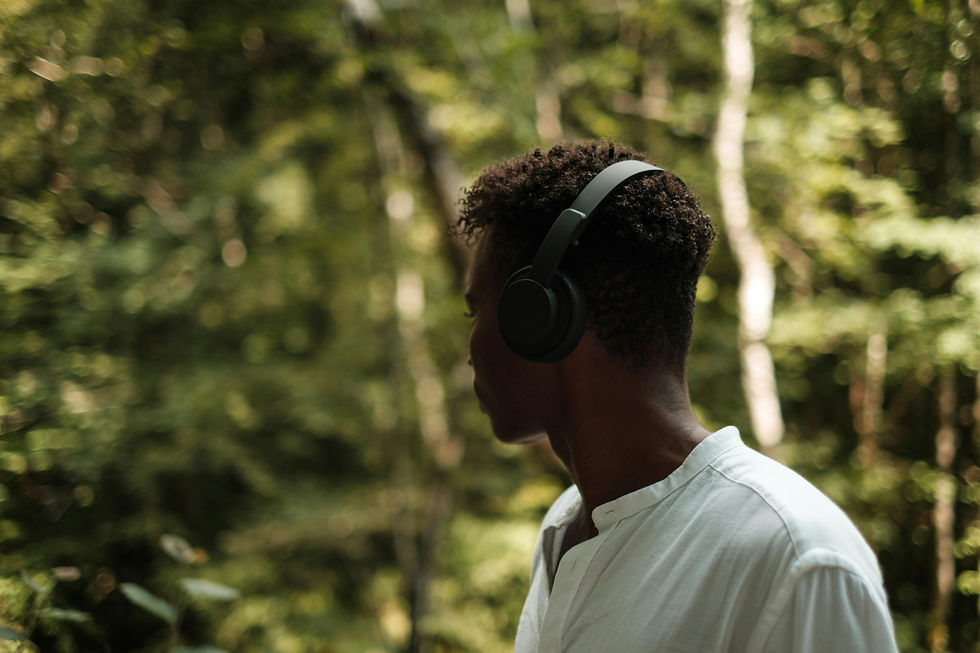The Impact of Holiday Music on Human Well-Being
- Tyler Scott
- Dec 23, 2023
- 3 min read
Updated: Jul 17, 2024

'Tis the season! The holidays are here and this time of year is often accompanied by a symphony of festive tunes that fill airwaves, shopping centers, and homes around the world. This music is unique in its ability to lift people's spirits and prepare them for a season of giving and connection.
In this blog we are exploring the influence of holiday music on human well-being, emotions, and behavior.
A Musical Mood Booster or Trigger for Stress?
Music, in general, has been recognized as a potent tool for altering mood and emotions. Dr. Sonja Lyubomirsky, a professor of psychology at the University of California, Riverside, states in her research that music has the ability to regulate emotions and elevate mood by stimulating the brain's reward system. During the holidays, familiar tunes associated with joy and celebration can trigger feelings of nostalgia and happiness.
According to clinical psychologist Scott Bea, PsyD, how we react to early Christmas tunes has a lot to do with what our brains associate with the holiday season. For those of us who have created warm and happy holiday memories, the familiar melodies can act as a trigger, evoking memories associated with past holidays, fostering a sense of belonging and connection. For those who have had more challenging holiday experiences, the sounds can trigger feelings of sadness and stress.
“If the tunes start too soon and people tend to have stress responses to the holidays, it activates those stress responses early to shop or to produce a perfect holiday,” Dr. Bea says.
Enhancing Social Connections
Holiday music also has a remarkable ability to bring people together. Whether it's caroling with friends and family or singing along to beloved tunes during gatherings, music fosters social connections and promotes a sense of community. Research confirms that communal singing, especially during the holiday season, creates a shared experience that enhances social bonding and collective well-being.
Singing together increases the feel-good hormone oxytocin and improves mood, helping us to bond with our fellow singers as we “perform” healthy relationships.
Group singing also has psychosocial benefits for people living with a range of health conditions. Such benefits include building resilience, enhancing mood, creating a sense of belonging and purpose, improving quality of life, and promoting flourishing and wellbeing. (The Conversation, Study Finds)
Consumer Behavior
In various settings, such as retail environments, the strategic use of holiday music has been leveraged to influence consumer behavior. An article in the New Zealand Herald outlines research taht demonstrates ways in which retailers used holiday music to increase consumer spending. For instance, playing festive music can positively impact consumers' perception of the shopping atmosphere, leading to longer shopping times and increased spending.
Nostalgia diminishes our desire for money while enhancing our desire for social and empathetic experiences. It both pushes and pulls us towards impulsive spending. But nostalgia is a well-established marketing tool that aligns well with the empathetic and affective nature of Christmas shopping. (Tom Garner, New Zealand Herald)
Final Notes
While the positive influence of holiday music on human well-being might seem evident, it's important to understand that individual responses to music can always vary. What might be uplifting for one person might not have the same effect on another. Nonetheless, the collective impact of holiday music on our emotions, social connections, and stress levels is undeniable.
This holiday season, as the familiar melodies fill the air, take a moment to appreciate the potential well-being benefits they bring. Whether it's a classic carol or a cheerful modern tune, let the music be a companion in spreading joy and fostering connections during this special time of the year.
Remember, the magic of holiday music isn't just in the notes—it's in the way it resonates within us, bringing warmth, joy, and a sense of togetherness.
Sources:

.png)




Comments